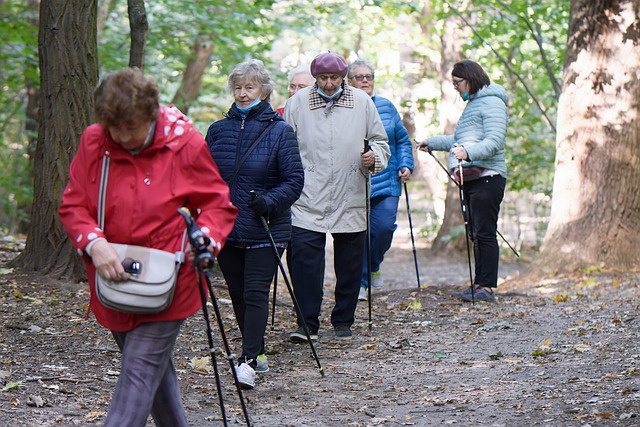Loneliness among the elderly is a significant issue, impacting mental and physical health. Elderly Companion Services are crucial in combating this by providing social interaction, assistance with daily tasks, and companionship, thereby reducing stress, depression, and cognitive decline. These services enhance well-being, create a sense of purpose and belonging, and support both seniors and their families, making them essential for addressing loneliness and isolation among the aging population.
Loneliness among the elderly is a growing concern, highlighting the need for effective solutions. This article explores how Elderly Companion Services can significantly enhance mental well-being. We delve into the profound impact of loneliness on seniors and present compelling evidence for the benefits of companionship support.
By examining real-life stories and scientific studies, we uncover how these services create meaningful connections, boost quality of life, and offer a powerful tool in combating social isolation. Discover why Elderly Companion Services are revolutionizing senior care.
- Understanding the Impact of Loneliness on Elderly Individuals
- Benefits of Senior Companion Services for Mental Health Support
- Creating Meaningful Connections: How Companionship Can Enhance Quality of Life
Understanding the Impact of Loneliness on Elderly Individuals

Loneliness among the elderly is a growing concern in today’s society, often overlooked but with profound implications for mental well-being. Many older adults find themselves isolated due to various factors such as living alone, reduced mobility, or the loss of loved ones. This sense of disconnection can lead to severe consequences, including increased stress levels, depression, and even cognitive decline. The impact of loneliness is not just emotional; it can affect physical health as well, leading to higher risks of heart disease, weakened immune systems, and overall poorer quality of life.
Elderly companion services play a vital role in combating these issues by providing much-needed social interaction and support. Having a dedicated companion can help bridge the gap of loneliness, offering companionship, assistance with daily tasks, and an ear to listen. These services cater to the unique needs of older adults, ensuring they remain active, engaged, and connected to their communities. By addressing loneliness head-on, elderly companion services contribute significantly to promoting mental well-being in the elderly population.
Benefits of Senior Companion Services for Mental Health Support

Senior companionship services play a pivotal role in enhancing the mental well-being of the elderly, offering much more than just social interaction. These services provide a sense of purpose and belonging, which is especially crucial for individuals dealing with loneliness and isolation—common issues among the aging population. Regular visits from companions can significantly reduce feelings of depression and anxiety by offering consistent companionship and emotional support.
The benefits extend beyond the individual; they also positively impact caregivers and families. By ensuring the mental health and overall happiness of the elderly, companion services alleviate the potential stress and burnout that can occur when caring for loved ones alone. This support system fosters a happier, healthier environment for both the elderly and their primary caregivers.
Creating Meaningful Connections: How Companionship Can Enhance Quality of Life

Creating meaningful connections is a cornerstone of human well-being, and this becomes increasingly important as we age. Elderly companion services play a vital role in enhancing the quality of life for seniors by providing opportunities for social interaction and building meaningful relationships. Loneliness and isolation are significant issues faced by many older adults, and companionship can offer a much-needed solution.
Through regular visits, shared activities, and genuine conversations, companions create a sense of belonging and purpose. These connections can help combat feelings of isolation, depression, and anxiety, which are common mental health concerns among the elderly population. The simple act of having someone to talk to, play games with, or even just sit quietly with can make a profound difference in one’s overall well-being. Companionship services thus contribute to a happier, more fulfilling life for seniors, allowing them to age gracefully and maintain their sense of self.
Elderly Companion Services play a vital role in combating loneliness and enhancing the mental well-being of seniors. By fostering meaningful connections, these services not only provide emotional support but also significantly improve the quality of life for older adults. Understanding the impact of loneliness and leveraging the benefits of companionship can revolutionize caregiving, ensuring a more fulfilling and connected future for our aging population.






